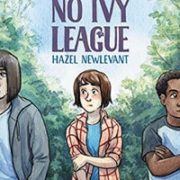I’m Glad My Mom Died by Jennette McCurdy
As a reader I generally gravitate toward novels. From time to time, however, I enjoy reading memoirs. I’ve never written a memoir, but I can imagine it sometimes proves difficult to say what one wants to say while worrying about hurting feelings of family or other personal relationships. Or, deciding if the memoir should even be written in the first place. A solution of celebrity actress Jennette McCurdy: wait until that someone dies. McCurdy’s I’m Glad My Mom Died chronicles her career as a child actress rising to stardom and her heartbreaking relationship with her abusive mother. While this topic could easily become an angry tirade, McCurdy’s memoir is darkly humorous, earnest, and a quick read, albeit gut-wrenching.
No doubt one of the most striking aspects of the book is its title and cover art. Don’t hate me here, but I’m going to use a familiar idiom: don’t judge a book by its cover. The bright, pastel colors of the cover art combined with McCurdy smiling as she holds a pink urn, along with the obvious title, does very much give the impression that McCurdy is happy her mom has died, and in some ways, she is. The cover serves as a shock to the system; I don’t know about you, but it’s not everyday that I see a book title announcing blatant cheer over the death of a parent. This is one of the aspects about McCurdy’s memoir that, for me, hits the nail on the head (surprise, another idiom!) as it immediately pulled me in and I wanted to know more. Within the memoir McCurdy details some of the physical, emotional, and mental abuse she received from her mother, and what I think pushes McCurdy’s memoir past the initial impression the title provides is that it examines how to process abuse from the hands of a loved one. I think McCurdy’s memoir may be judged too quickly or harshly because of the title, but what the memoir does is navigate the very complex relationship between abuse and love.
McCurdy makes this possible with the way she sets up her memoir. The memoir’s opening chapter finds McCurdy and her two brothers at the side of their mother’s hospital bed, taking turns attempting to tell their unconscious mother something so shocking that it will rouse her from her coma. When McCurdy gets her turn she believes she has the perfect thing to wake her mother: she has reached a total weight of 89 pounds, her mother’s goal weight for her. McCurdy is in her early twenties at this point.
From here McCurdy jumps back in time, starting when she is a child prior to her acting career, and proceeds through the rest of the memoir in timeline order. McCurdy relates entire happenings and conversations from her childhood and teenage years, often with her overbearing mother, as well as the thoughts and feelings her younger self had at the time. This provides insight into the evolution of McCurdy’s acting career, the abuse she suffers, and her love for and relationship with her mother during various points of her life. McCurdy describes what it was like growing up acting (which she did to please her mother), the ups and downs of being a Nickelodeon star, her relationships with fellow actors (this reaffirmed my belief that Miranda Cosgrove is a kind human), and how being a child actor has shaped her life today. McCurdy also describes her struggles with addiction and eating disorders, which her mother introduces her to as “calorie counting” during adolescence.
I’m glad I read McCurdy’s memoir. It is well written and has a good deal of wit and sarcasm akin to what fans of McCurdy’s iCarly character Sam Puckett might expect. I listened to the audio version that is read by McCurdy herself, making the experience of the memoir even more personal. McCurdy candidly shares quite a lot of herself in this memoir, and while her story is raw and difficult at times, she demonstrates an openness that deserves to be recognized.
Review by Sarah Turner-Hill, Adult Programming Coordinator










